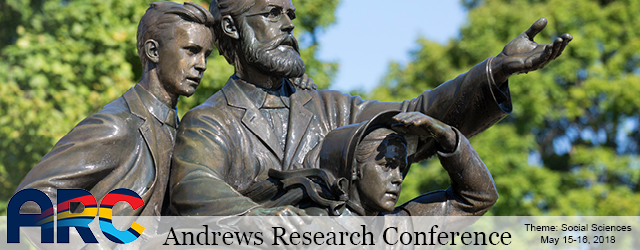Social Belonging and Cultural Citizenship for African American LGBTQ Youth in Birmingham Alabama: A Dialectical Approach to Methodology
Presenter Status
PhD Candidate, Department of Anthropology
Presentation Type
Oral
Presentation Abstract
Research participants marginalized by race, gender, and age require special protections under federal guidelines. This paper presents the methodological approaches utilized in the dissertation project “Creating Belonging: Cultural Citizenship for African American LGBTQ Youth in Birmingham Alabama”. The social and political implications of the intersections of race and gender embodied by these young individuals are embedded in historical processes of exclusion and subjugation in Birmingham and in the United States more broadly. To protect the privacy and safety of participants and to collect valid and reliable data, a carefully devised research plan was necessary. The process of data collection, consisting of participant observation, anonymous surveys, interviews, and two 12-week series of art classes culminating with public exhibits of participants’ spoken, written and mixed media works of art was decided on through a dialectal process between the relevant literatures, the Office of Research Integrity at the University of Kentucky, federal guidelines such as the Belmont Report, and the National Science Foundation. Through the resulting mixed-methods approach, this project hopes to advance social science understandings of cultural citizenship through its focus on everyday urban sociospatial practices as sites of civic engagement as it examines how African American LGBTQ youth in Birmingham Alabama employ everyday interactions and practices to create places of belonging. This paper discusses each research method and the rationale behind its use related to the goals and ethics of qualitative human-subjects research.
Biographical Sketch
Stacie Hatfield is a PhD candidate living and conducting research in Birmingham Alabama. She holds a graduate certificate in gender and women's studies from the University of Kentucky, a BA in anthropology from Fort Lewis College, Durango Colorado, and a BS in nursing from Union College in Lincoln Nebraska. She can be reached at stacie.hatfield@uky.edu
Stacie Hatfield is a PhD candidate in cultural anthropology at the University of Kentucky. She is currently conducting fieldwork on cultural citizenship and social belonging for African American LGBTQ youth in Birmingham Alabama. Prior to her anthropological studies, she received a BS in nursing from Union College in Lincoln Nebraska and has clinical expertise in emergency care. It was in the emergency department that intersections of age, gender, race, and sexual health in the social lives of youths became of pressing interest. She can be contacted at stacie.hatfield@uky.edu
Social Belonging and Cultural Citizenship for African American LGBTQ Youth in Birmingham Alabama: A Dialectical Approach to Methodology
Research participants marginalized by race, gender, and age require special protections under federal guidelines. This paper presents the methodological approaches utilized in the dissertation project “Creating Belonging: Cultural Citizenship for African American LGBTQ Youth in Birmingham Alabama”. The social and political implications of the intersections of race and gender embodied by these young individuals are embedded in historical processes of exclusion and subjugation in Birmingham and in the United States more broadly. To protect the privacy and safety of participants and to collect valid and reliable data, a carefully devised research plan was necessary. The process of data collection, consisting of participant observation, anonymous surveys, interviews, and two 12-week series of art classes culminating with public exhibits of participants’ spoken, written and mixed media works of art was decided on through a dialectal process between the relevant literatures, the Office of Research Integrity at the University of Kentucky, federal guidelines such as the Belmont Report, and the National Science Foundation. Through the resulting mixed-methods approach, this project hopes to advance social science understandings of cultural citizenship through its focus on everyday urban sociospatial practices as sites of civic engagement as it examines how African American LGBTQ youth in Birmingham Alabama employ everyday interactions and practices to create places of belonging. This paper discusses each research method and the rationale behind its use related to the goals and ethics of qualitative human-subjects research.



